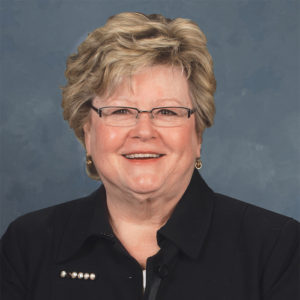
Make a plan.
“People need to plan as they age to be in an environment that gives them the freedom they want: maybe you need to be on one level so you don’t have to deal with steps, or need safety features like a covered garage. One of the things that people ought to be really thinking about is a driving retirement program. As people age, there are issues that make driving safety sometimes a problem. And if you think about it, you can choose a place to live where you have transportation options. You don’t need to feel that if you don’t drive, you’ll be isolated. As you go into older adulthood, you have to think about what’s the most important thing to you and how you can continue to do it.”
—Carolyn M. Baum, PhD, OTR, FAOTA, is the Elias Michael Executive Director and professor of the Program in Occupational Therapy at the School of Medicine. Baum studies how engagement in daily activities supports health.
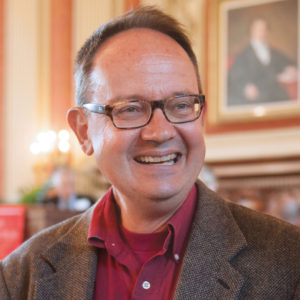
Improve your memory.
“There are certain mnemonic techniques that people can use to produce some benefits in memory. One of the most common and frustrating problems that older adults experience is name retrieval difficulties, such as remembering the name of a person you were just introduced to. One of the techniques that researchers have shown benefits people is retrieval practice. So if I’m introduced for the first time, I say, ‘Nice to meet you, John Doe.’ And then I carry on the conversation, and a little bit later, I retrieve that name again. And then I wait a little bit longer to retrieve that name again. So practicing and spacing turns out to be really important in laying down memory traces, not just for healthy individuals but also for individuals with early-stage Alzheimer’s disease.”
—David Balota, PhD, professor of psychological and brain sciences in Arts & Sciences and of neurology in the School of Medicine, conducts research on attention, memory and visual word recognition in young adults, older adults and individuals with dementing illnesses.
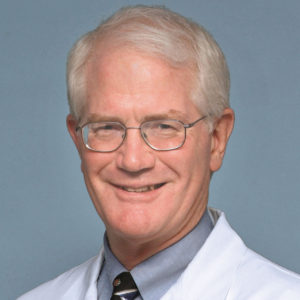
Understand your risks.
“The primary risk factor for Alzheimer’s disease is increasing age. The older we get, the greater the risk. Some studies suggest that by age 85, close to 50 percent of people may be at risk for developing symptomatic Alzheimer’s disease. Family history (genetics) is the second-greatest risk factor. However, in general, the increased risk for offspring diminishes greatly if symptoms for the parent developed after age 80.”
—John C. Morris, MD, is the Harvey A. and Dorismae Hacker Friedman Distinguished Professor of Neurology and the director of the Charles F. and Joanne Knight Alzheimer’s Disease Research Center at the School of Medicine.
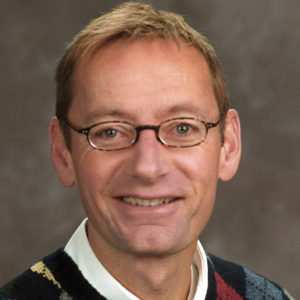
Talk about the future.
“Have [end-of-life-care] conversations with people you care about before there is an urgent need. These conversations are hard to have — and they’re even more challenging when in the midst of a crisis or some emergency that is emotional and demands quick decisions. So start talking about end-of-life preferences early. And to get the conversation started, it’s less intimidating to start with broad questions — such as ‘What would matter to you the most if you were near the end of your life?’ — rather than asking people for specifics right off the bat.”
—Brian Carpenter, PhD, professor of psychological and brain sciences in Arts & Sciences, conducts research on family decision-making and communication.
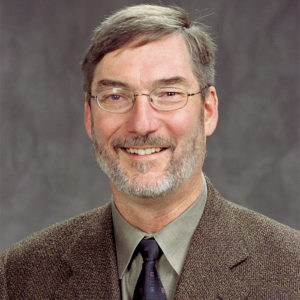
Expect some positive changes.
“There’s good news about personality as people get older. The expected pattern of change is positive. As people approach the latter part of middle age to later life, conscientiousness goes up and the experience of positive emotion goes up. The propensity to experience strong negative emotions goes down. I should qualify this by saying these are small changes, but they are characteristic of the average person.”
—Thomas Oltmanns, PhD, the Edgar James Swift Professor in Arts & Sciences and professor of psychiatry and director of clinical training at the medical school, is conducting a longitudinal study on the impact of personality pathology in later life.
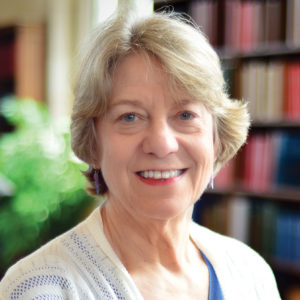
Find meaning.
“Psychologists have determined that as we approach later life, our orientation to time changes, and we begin to understand the finiteness of life. Although there seems to be a natural tendency toward reorienting in the face of the limits of life, we might more purposively decide how to use our energies to make the most of these years. There are many challenges, but there are also many opportunities in later life. We must decide what is most important to us, what our purpose is as an older adult. It may be relationships with family and friends; it may be a work or volunteer position; it may be a hobby — whatever brings us meaningful engagement. With this focus on what’s important to us, we can assess the barriers and resources that we have and determine the best way to achieve these goals. Now or never…”
—Nancy Morrow-Howell, PhD, is the Bettie Bofinger Brown Distinguished Professor of Social Policy at the Brown School and director of the Harvey A. Friedman Center for Aging. She studies how older adults can remain engaged and productive in later life.
